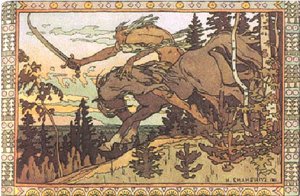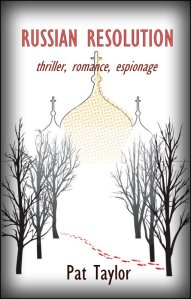PUTIN THE PAST BEHIND US
The foreign policy of Russia has not changed in over a thousand years. The streets of Moscow and St Petersburg may have the veneer of Western civilisation, but the heartbeat of Russia is in Velikiy Novgorod the birthplace of Russia in the 9th Century where Scandinavian chieftain, Rurik, founded a settlement on the banks of river Volkov.
Unlike the UK, which has not been invaded in a nearly a thousand years, Russia has never had a significant period of peace because of wars against Mongols, Swedes, Teutonic knights, Poles, Turks, Persians, French, British, Austrians, Fins, Chinese, Japanese, and Germans. Meanwhile internal feuds between princes vying for power included: blinding, poisoning, strangling, stabbing, and shooting each other.
This violent history involves authoritarian, ruthless, rulers who conquered and crushed neighbouring countries including the Eastern bloc post World War 2. At the peak of Soviet Power Stalin controlled 293 million people with over a 100 different national ethnicities inhabiting one sixth of the world’s land surface:
‘When the sun sets on Leningrad it rises over Vladivostock.’
As a result of this turbulent past, key factors driving Russian foreign policy are: love of the motherland, Russian supremacy, fear of invasion, acceptance of bad times, valuing strong leadership, aggressive bargaining, reneging on agreements, and a craving for ice free ports.
At the end of the last century, when Communism was replaced by instant capitalism, central authority collapsed. The Soviet Union broke up and the buffer of the Warsaw Pact against NATO disappeared. Western companies and governments plundered Russia’s assets. The United States humiliated Russia whilst pursuing policies and wars in the Middle East.
Communism had professed equality for all. Also all enterprises belonged to the State and thus to the workers. Under Capitalism, a few Russian oligarchs embezzled billions of dollars of state assets whilst many Russians faced unemployment and poverty, which was unknown in post war communism. From previously being the alternative super power to the USA, Russia became a failed economy exploited by the West. A new poor emerged who could not afford housing and health care. Professionals, let alone workers, retiring on a State pension found it was worthless after the hyper-inflation of capitalism. Russia now has the highest level of inequality of any major nation, because 110 super rich control one third of the county’s wealth.
When communism collapsed in Eastern Europe the secret police were disbanded and discredited, but the KGB in Russia never relinquished power and produced two of Russia’s recent rulers: Andropov and Putin. Under Putin, the worst aspects of communism combined with the downside of capitalism. Freedom of speech was curtailed and opposition was quelled. When influential Russians voiced their dissent with the current regime they were assassinated. Putin rigged the voting and circumvented the Constitution to achieve more dictatorial power than Brezhnev held during communism. However, the West did not want to rock the boat whilst they had opportunities to plunder Russia’s mineral resources. Meanwhile, Putin started to recoup control of the utilities and fight to retain break away territories such as Chechnya and South Ossetia.
Despite the signs of Putin being a belligerent leader determined to restore his country’s former glory, Europe became more and more dependent for energy from cheap gas from Siberia. These pipe lines ran through the Ukraine, who a few years back threatened to cut the supply. Subsequently, Russia plans a Southern pipeline route across the Black Sea to Turkey. A pro Russia Eastern Ukraine or a Russian corridor to the Crimea would provide a secure pipeline route.
Now Russia is faced with the prospect of the Ukraine leaving their sphere of influence and eventually joining the EU and possibly later joining NATO. This change of allegiance was a worse threat to Russia than the Cuban missile crisis was to the USA. Furthermore, Russia feared it would lose its naval port, Sevastopol, in the Crimea which gives it access to the Mediterranean. So Russian troops invaded, captured the Crimea, and promoted and supported rebels in Eastern Ukraine to break away from the Kiev government to provide a link from Russia to the Crimea.
Western European governments wish to maintain the Status quo where their constituent nations no longer dispute frontiers. However, Putin is steeped in his country’s history, with its constantly changing boundaries and conquered lands, and will go to any length to fuel his ego as a man of destiny who, by restoring Russia’s pride and territories, will rank alongside those princes who shaped Russia’s past.
Commercial disengagement by the West from Russia including reducing the dependence on Russian energy may hamper the West’s economic recovery today, but not to do so as Chamberlain said prior to World War Two, ‘because of quarrel in a far-away country between people of whom we know nothing…’ may have the same effect of plunging all of Europe into war. Every time Putin holds peace talks with the West whilst continuing with his subversive plans he gains ground. Capitulation is not an option; economic isolation is; that is how Communism was brought to its knees.
WHAT DO YOU THINK?
Ex diplomat/spy, Jake, framed for murder escapes from Russia, but returns risking his life to save his lover, Lena, from the clutches of his KGB nemesis, Boris.
During the Cold War, Jake Kilgour, a married diplomat and spy, meets Tanya, an Intourist guide in a Novgorod restaurant where she asks him to dance. He is tempted, but refuses, because he believes it is a KGB trap.
Continually drawn back to her, Jake is confused about her intentions as he is drawn deeper and deeper into the clutches of Boris a brutal KGB major, who hates Jake and lusts after Tanya.
There can be only one winner out of the two suitors vying for her favours in their deadly struggle through the years from communism to capitalism.
The novel is embedded in the cultural background of Russia and its tragedies. There are many twists, turns, deaths, betrayals, and despair before the unforeseen ending.
Available as a Kindle ebook (free app for tablets/smart phones form Amazon) or as a paperback:
CLICK ON COVER TO SAMPLE
UNITED STATES
UNITED KINGDOM

